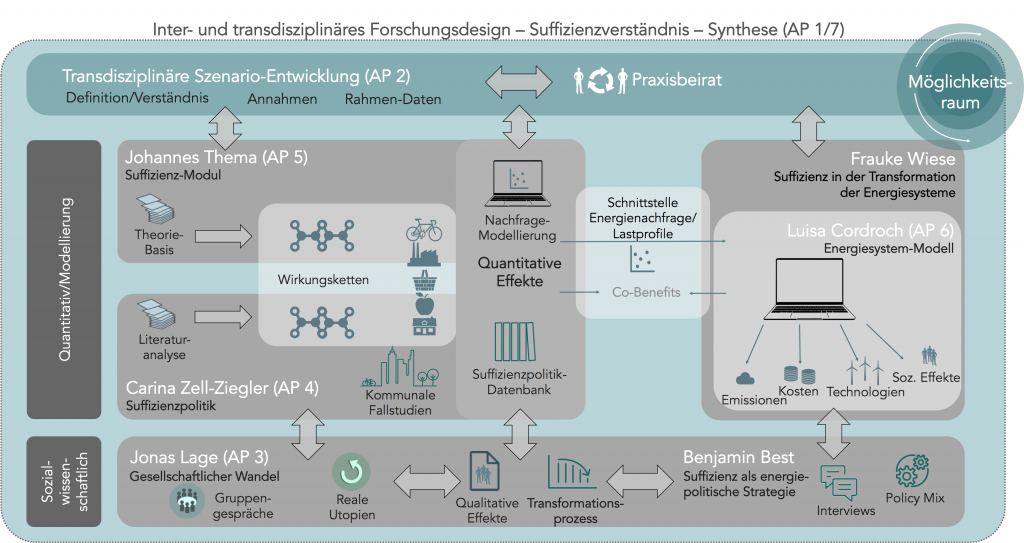about Ensu
research project
In order to be able to stay within the 1.5° boundary we need all three strategies of the energy transition:
Sufficiency = absolute reduction of the energy demand through social innovations, through the phase-out of unsustainable structures and through behaviour changes.
Efficiency = less energy input relative to the same purpose
Consistency = renewables instead of fossiles
In the political sphere sufficiency is mostly known in the form of appeals to individually abandon unsustainable practices, reduce consumption or to enhance individual care and provisioning. The junior research group, in contrast, wants to investigate which sufficiency policies are needed in order to enable people to consume less resources.
The junior research group conducts research in interdisciplinary cooperation between engineering energy modelling, political science and socio-ecological transformation research. The common goal is to make the effect of sufficiency measures measurable and thus presentable for energy system modelling. Modelling of the energy system is largely blind to changes caused by social change, as it has so far only depicted what is easy to quantify. As these models are often the basis for energy and climate policy, sufficiency measures are not incorporated into policy. The group wants to change this by including sufficiency options in models and scenarios.
To this end, the researchers are developing a so-called “sufficiency module” that can be used in various energy models. Sufficiency approaches for climate and energy scenarios are empirically based in this module and their effects on the demand for electricity, heat and transport are mapped with data.
In order to be able to develop practical recommendations for action, the junior research group works not only interdisciplinary but also transdisciplinary with practical partners from local authorities, federal politics and associations such as state consumer centres.

